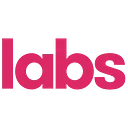AI Collaborative Search Engine

What is fabric.so?
Fabric is an AI-driven workspace and file explorer tailored for both individuals and teams. It serves as a central hub that automatically consolidates drives, cloud storage, notes, screenshots, links, and files into an organized system. Key features include intelligent self-organization for easy content retrieval, natural language search capabilities for finding items effortlessly, and integrated collaboration tools that allow users to work together on files and documents. Fabric also enables users to add context with searchable and shareable notes overlaying websites, images, or PDFs. Overall, Fabric functions as a unified digital workspace, enhancing productivity by providing a streamlined environment akin to having a personal digital assistant.
How does fabric.so work?
Fabric is an AI-native workspace and file explorer designed for individuals and teams, functioning like a copilot that consolidates drives, clouds, notes, screenshots, links, and files into one self-organizing hub. Key features include intelligent self-organization for quick content retrieval, natural language search to locate items without exact names, and collaboration tools for working on files and documents. Users can also add context with searchable, shareable notes on websites, images, or PDFs, making Fabric a unified workspace for managing and collaborating on diverse content types.
How secure is fabric.so?
Fabric prioritizes security to safeguard user data. While specific details about their security practices aren't available, typical considerations for such platforms include encryption (e.g., SSL/TLS) for data transmission security, robust access controls to manage content access, strong authentication methods (e.g., passwords, multi-factor authentication), secure data storage in redundant and backed-up environments, and compliance with data protection regulations like GDPR. For precise information, reviewing Fabric's security documentation or contacting their support is recommended.
How much does fabric.so cost?
Fabric offers a pay-as-you-go pricing model based on Capacity Units (CUs) in various regions:
US West 2 (Azure region):
- Cost: $0.18 per CU per hour
- Monthly cost for an F2 capacity (assuming 730 hours): Approximately $262.80
- Billing: Per second with a one-minute minimumCentral US:
- Pay-as-you-go: $0.18 per CU per hour
- Reservation: $0.107 per CU per hour
- Example costs:
- Pay-as-you-go: Approximately $0.63 per hour
- Reservation: Approximately $0.38 per hour
During its preview phase, Fabric is currently free, but once it transitions to general availability, trial options similar to other Microsoft services may be available. For specific details, consulting Fabric's official documentation or contacting their support team is recommended.
What are the limitations of fabric.so?
Here are some identified limitations of Fabric:
T-SQL Functionality: There are limitations in T-SQL functionality, and certain commands can potentially cause warehouse corruption. Specific limitations can be found in the T-SQL surface area article.
Geography Support: Fabric currently does not support data warehousing across multiple geographies.
Garbage Collection: Parquet files that are no longer needed are not automatically removed from storage by garbage collection.
SQL Analytics Endpoint:
- Data must be in Delta Parquet format for autodiscovery.
- Tables with renamed columns are not supported.
- Delta tables created outside the /tables folder are not available.
- Some columns from Spark Delta tables may not be accessible.
- Adding a foreign key constraint restricts further schema changes.
- Ensure Lakehouse tables are located correctly for availability.
Fabric is continually evolving, and additional functionalities are expected to be added over time to address these limitations.
What is FabricSO and how does it function like a "second brain"?
FabricSO is a universal workspace and smart organizer designed to consolidate and manage your thoughts, ideas, memories, files, projects, links, and screenshots in one place. It functions like a "second brain" by capturing, storing, and creating content or data from any application you connect it with. FabricSO is designed to be intelligent, automatically understanding and organizing files by connecting related content, thus eliminating the need for manual categorization. Users can explore and create content, collaborate in real-time with live cursors, chat, and comments.
How does FabricSO enhance collaboration among users?
FabricSO enhances collaboration by allowing users to be together on any file, note, or website. It offers live cursors, chat, comments, and several collaborative tools that support real-time interaction on shared digital items. Everything in FabricSO acts as a canvas for annotation and discussion where users can draw, chat, or leave notes on any document or file. FabricSO supports shared spaces for gathering inspiration, building lists, and curating content for projects, making it easier for teams to work together on tasks and feedback in context.
What are the key features of FabricSO that boost productivity?
FabricSO boosts productivity with its smart knowledge base that organizes content automatically and provides natural language search capabilities. This intelligent AI-powered tool saves time by automatically tagging and summarizing content, ensuring users can find and manage their data effortlessly. FabricSO supports a wide array of content types, including PDFs, images, videos, notes, and more, syncing with many popular apps like Google Drive, Notion, and Figma. This centralized approach ensures users aren't spread across multiple apps and can focus on their work efficiently.







%20(1)%20(1).webp)
























